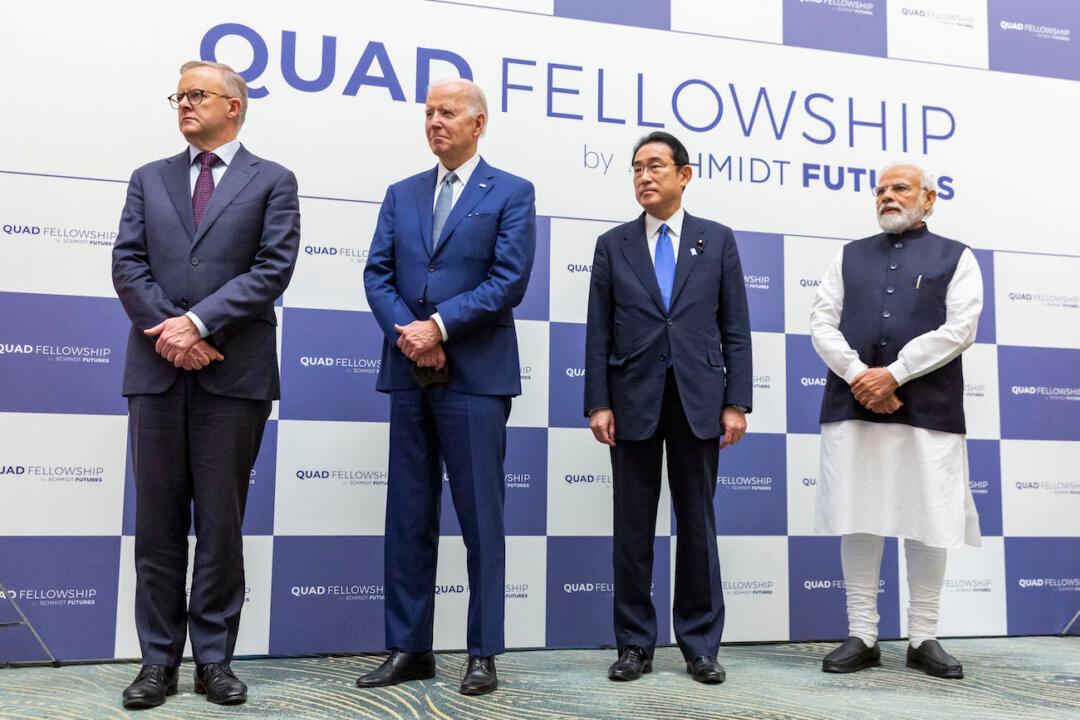President Joe Biden is set to host leaders from Australia, India, and Japan on Sept. 21, in one of his last chances to shape policy in the Indo-Pacific region before he leaves office—the Quad Leaders Summit.
Biden will host Australian Prime Minister Anthony Albanese, Indian Prime Minister Narendra Modi, and Japanese Prime Minister Fumio Kishida at his private residence in Wilmington, Delaware, on Saturday for the fourth in-person Quad Leaders Summit.





